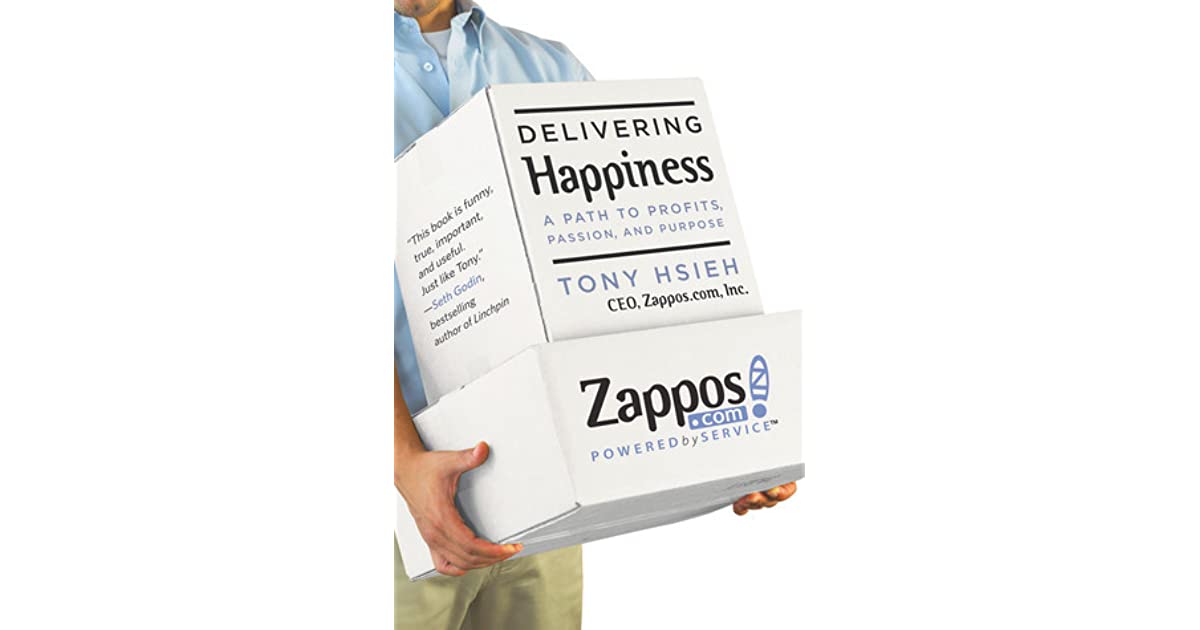Tony Hsieh has some nerve suggesting that he built a billion dollar company in pursuit of happiness. But the surprising thing is I actually think he’s onto something. Something that cuts through a lot of corporate BS and really makes sense.
Tony’s thesis is basically that, whatever our intermediate goals in life are (get your dream job, make a lot of money, find the right girl, etc), our ultimate goal is simply to be happy. And what’s more, (this is the key), happiness in life has to come from y Tony Hsieh has some nerve suggesting that he built a billion dollar company in pursuit of happiness. But the surprising thing is I actually think he’s onto something. Something that cuts through a lot of corporate BS and really makes sense.
Tony’s thesis is basically that, whatever our intermediate goals in life are (get your dream job, make a lot of money, find the right girl, etc), our ultimate goal is simply to be happy. And what’s more, (this is the key), happiness in life has to come from your job as much as your personal life.
Tony lays out a framework for how he personally has used happiness to create a very unique and successful culture at Zappos – and how he personally came to that conclusion in his own life.
I heard Tony Hsieh speak several years ago, and from that had one key takeaway: that instead of spending marketing dollars acquiring customers, just have mind-blowing WOWingly good customer service – and your product will spread naturally – as people will tell their friends about their good experiences. It’s harder to calculate the ROI, but it’s something that makes a lot of sense, and we’ve definitely incorporated it into Goodreads.
Tony’s Happiness frameworks has four pieces:
1. Perceived control: people need to be in control over their own fate. At Zappos reps can earn up to 20 different skill sets or “badges”, and each one represents a pay raise. It’s up to the employee how much money they want to make.
2. Perceived progress: nobody likes to feel like they aren’t going anywhere. At Zappos they give smaller raises every 6 months instead of bigger ones annually.
3. Connectedness. Studies show that engaged employees are more productive, and the number of good friends an employee has at work is correlated with how engaged the employee is. I found this one most interesting.
4. Vision/Meaning/High Purpose. People need to believe in something bigger than themselves. The book Good to Great discusses how the truly great companies in terms of long term financial performance are those with higher purposes beyond making money. This I do believe, which is why on the Goodreads about us page our mission is stated as “to get people excited about reading”.
Other things I learned about Tony that were interesting:
– Tony walked away from $20 million dollars because he didn’t want to waste a year being miserable working for Microsoft.
– Tony spent every cent he made from the $265 million LinkExchange acquisition in keeping Zappos afloat. Again – admirable.
Things I learned about Zappos that were interesting:
– The Zappos Core Values actually help the company quite a lot, as they’ve made believing in their core values a core value.
– The Core values are the way to keep the culture strong, because they are guidelines for people hiring to keep the desired qualities and traits. Each core value has different interview questions, and employees try to gauge new candidates on each value using these questions.
– Zappos believes so much in it’s culture that Tony created a program to teach other companies how it did it – called Zappos Insights.
– Zappos built a culture book filled with stories of employees describing what each of the core values means to them regarding the company. This makes the company feel like a big family. …more

Continue lendo em https://www.goodreads.com/book/show/6828896-delivering-happiness



